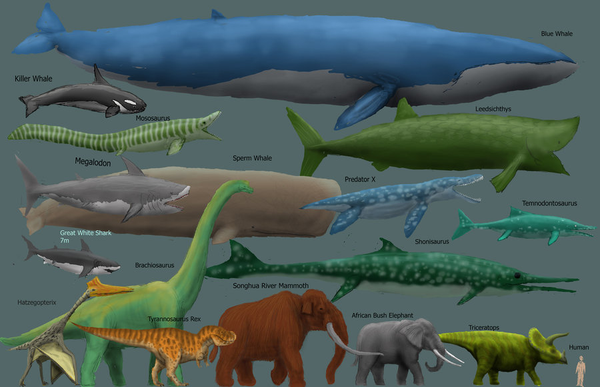- What are the positive effects of potassium?
- What are the negative effects of potassium?
- What does potassium do for animals?
- How does potassium affect plant growth?
- What happens when plants lack potassium?
- What happens if your potassium is high?
- Will potassium make you poop?
- Does potassium make you pee a lot?
- Why can't you lay down for 10 minutes after taking potassium?
- What is potassium in animals?
- Do all animals need potassium?
- What is the role of K+ in biological system?
- Why would a baby have high-potassium?
- Why would a child have high-potassium?
- What should a child's potassium level be?
- How does potassium affect photosynthesis?
- Which plants benefit from potassium?
- How does potash help plants?
What are the positive effects of potassium?
Potassium is one of the most important minerals in the body. It helps regulate fluid balance, muscle contractions and nerve signals. What's more, a high-potassium diet may help reduce blood pressure and water retention, protect against stroke and prevent osteoporosis and kidney stones.
What are the negative effects of potassium?
In some people, potassium can cause stomach upset, nausea, diarrhea, vomiting, or intestinal gas.
What does potassium do for animals?
Potassium is one of the most important electrolytes in the body and is essential for cell function. Potassium performs several tasks in metabolism, muscle activity and nerve function. Potassium is particularly important for pets. It provides a balanced diet and can help prevent cardiovascular diseases.
How does potassium affect plant growth?
Role in plant growth
Potassium is associated with the movement of water, nutrients and carbohydrates in plant tissue. It's involved with enzyme activation within the plant, which affects protein, starch and adenosine triphosphate (ATP) production. ... Maintains turgor; reduces water loss and wilting.
What happens when plants lack potassium?
Typical symptoms of potassium deficiency in plants include brown scorching and curling of leaf tips as well as chlorosis (yellowing) between leaf veins. Purple spots may also appear on the leaf undersides. Plant growth, root development, and seed and fruit development are usually reduced in potassium-deficient plants.
What happens if your potassium is high?
Having too much potassium in your blood can be dangerous. Potassium affects the way your heart's muscles work. When you have too much potassium, your heart may beat irregularly, which in the worst cases, can cause heart attack. If you think you are having a heart attack, call 911 for emergency help.
Will potassium make you poop?
Constipation. Potassium plays an important role in relaying messages from the brain to the muscles and regulating muscle contractions. Low potassium levels can affect the muscles in the intestines, which can slow the passage of food and waste. This effect on the intestines can cause constipation and bloating.
Does potassium make you pee a lot?
A potassium level that is too high or too low can be serious. Abnormal levels may cause symptoms such as muscle cramps or weakness, nausea, diarrhea, or frequent urination.
Why can't you lay down for 10 minutes after taking potassium?
Sucking on a potassium tablet can irritate your mouth or throat. Avoid lying down for at least 30 minutes after you take this medication.
What is potassium in animals?
Potassium is the main intracellular ion for all types of cells, while having a major role in maintenance of fluid and electrolyte balance. ... Animals, in particular, employ sodium and potassium differentially to generate electrical potentials in animal cells, especially in nervous tissue.
Do all animals need potassium?
Potassium (K) is essential for human and animal life. Potassium is involved in many body functions and is required for proper muscle development. Adequate K is also important for good heart function.
What is the role of K+ in biological system?
It helps your nerves to function and muscles to contract. It helps your heartbeat stay regular. It also helps move nutrients into cells and waste products out of cells. A diet rich in potassium helps to offset some of sodium's harmful effects on blood pressure.
Why would a baby have high-potassium?
Hyperkalemia in pediatric patients is most commonly associated with renal insufficiency, acidosis, and with diseases that involve defects in mineralocorticoid, aldosterone, and insulin function. In addition, hemolysis in blood specimens owing to difficulties in obtaining samples may also be a factor.
Why would a child have high-potassium?
High blood potassium levels can also be caused by conditions that move potassium from the body's cells into the blood. These conditions include severe burns, crushing injuries, heart attack, and diabetic ketoacidosis. Taking too many potassium supplements can also cause high levels of potassium in the blood.
What should a child's potassium level be?
Most reference laboratories establish the lower pediatric limit of normal serum potassium between 3 and 3.5 mEq/L. However, symptoms are unlikely to occur in most healthy children until serum potassium is below 3 mEq/L.
How does potassium affect photosynthesis?
In Photosynthesis, potassium regulates the opening and closing of stomata, and therefore regulates CO2 uptake. Potassium triggers activation of enzymes and is essential for production of Adenosine Triphosphate (ATP). ATP is an important energy source for many chemical processes taking place in plant issues.
Which plants benefit from potassium?
In short, potassium helps plants grown for their fruiting and flowering, including rose bushes and fruit trees, rather than plants grown for their foliage, such as spinach, lettuce and Swiss chard. Banana peels are good fertilizer because of what they do not contain.
How does potash help plants?
Plants deficient in potassium are less resistant to drought, excess water, and high and low temperatures. They are also less resistant to pests, diseases and nematode attacks. Because potassium improves the overall health of growing plants and helps them fight against disease, it is known as the "quality" nutrient.
 Animalscaretips
Animalscaretips



